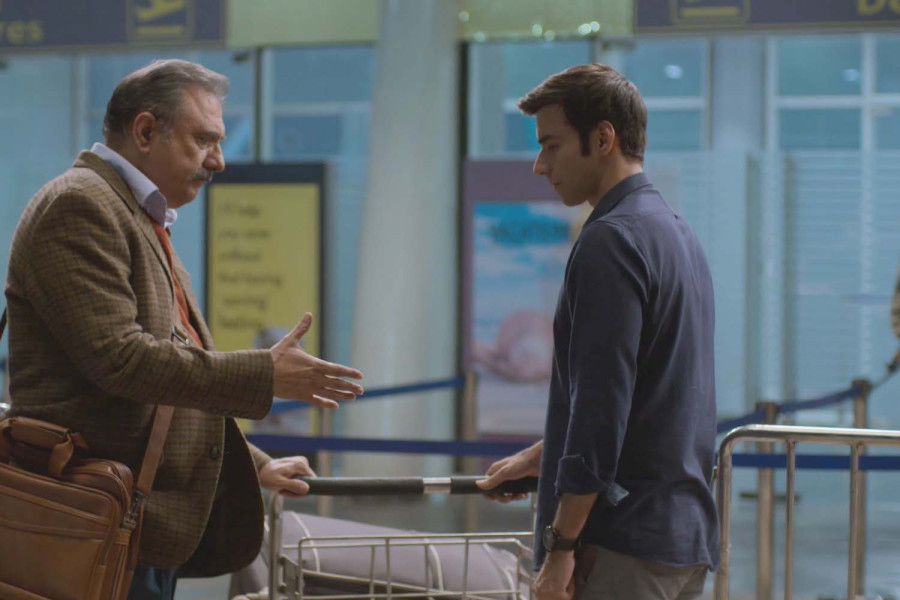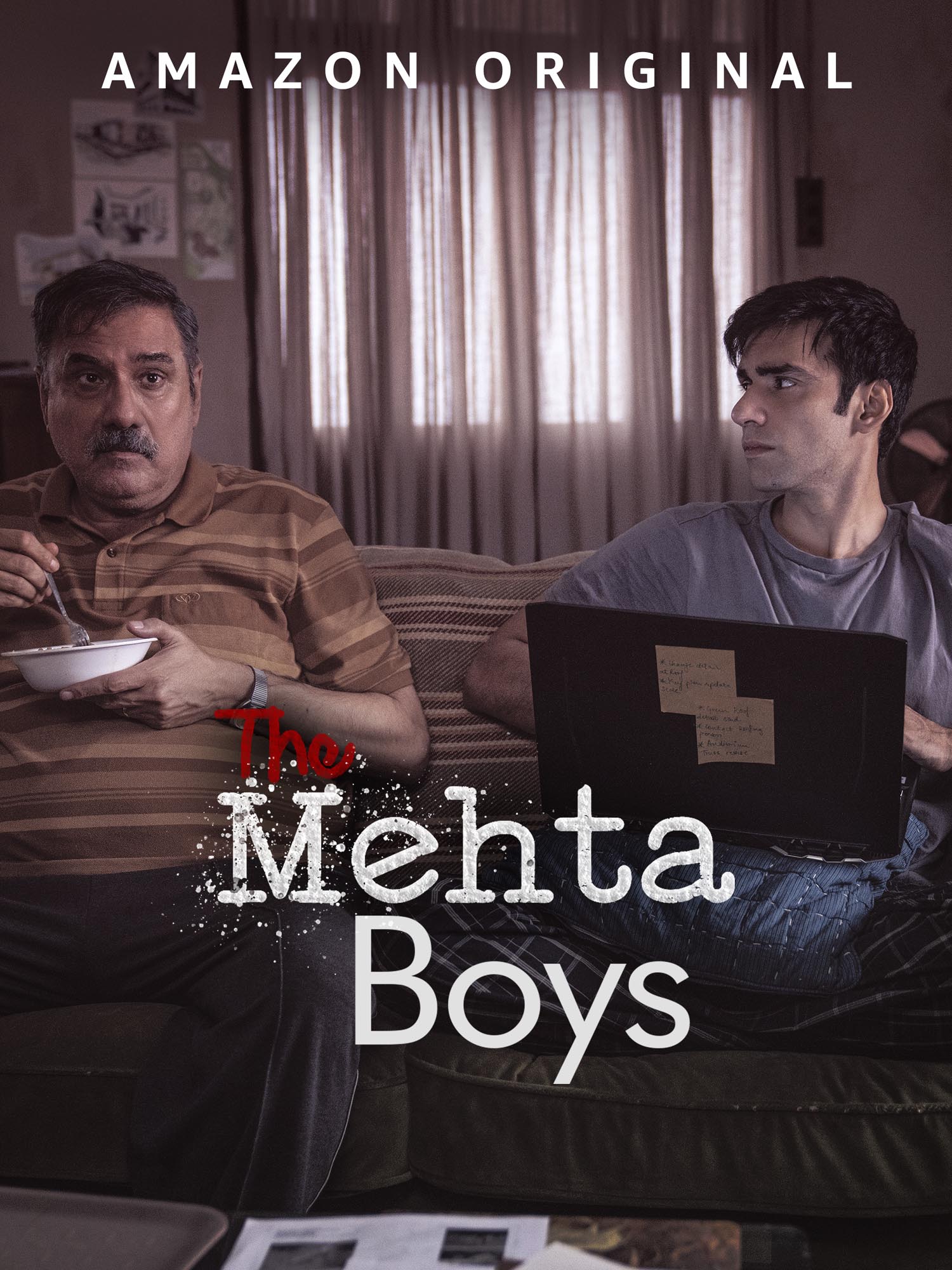Movies
A journey of silent bonds
‘The Mehta Boys’ explores the strained relationship between a father and son, highlighting their emotional distance.
Sanskriti Pokharel
You may want to hug your father after watching ‘The Mehta Boys’. Fathers, often perceived as tough, formal, and emotionally reserved, shape us to face the harsh world. As children, we may not always recognise their love, but after stepping into adulthood, we learn their sacrifices. This is the essence of the film.
The story begins at a chaotic apartment in Mumbai. Things are scattered and poorly managed. The walls are old, and the paint has started to peel off. After waking up, protagonist Amay Mehta (Avinash Tiwary) stares at the ceiling. Before doing anything else, he sits to sketch (he is an architect). Our elders say engaging in something first thing in the morning and again before bed will make you perfect.
As the story unfolds, it becomes evident to the viewers that he is, in fact, trying to sharpen his skills. Deep down, he does not think he is good enough. During an office meeting, he receives a note that prompts him to leave quickly. There are no overt clues that he is heading to his parents’ home, nor that his mother has passed away.
When he arrives, viewers again cannot guess what has happened. The house appears tranquil from the outside, adorned with lush trees and blooming flowers. It offers no hint of the sorrow within. It is only when he steps inside and speaks with his NRI sister that the weight of the situation finally reveals itself to the viewers.
The house, heavy with grief, is filled with relatives and neighbours who have gathered to pay their respects. Amidst the murmurs and solemn faces, Shiv Mehta (Boman Irani) moves through the room and offers his gratitude with a handshake to each visitor. Yet, when he reaches his own son, Amay, he does the same. He extends his hand as if his son was just another guest.
In a moment where an embrace would be natural, their handshake speaks volumes. It is oddly distant and formal. It hints at the unspoken tension that lingers between them. This, the unspoken tension, is the core element of the film.
Due to unexpected twists in fate, Shiv, who was meant to fly to the USA with his NRI daughter, finds himself staying with his son, Amay, in his cramped Mumbai apartment for 48 hours. This sudden change in plans sets the stage for an intense emotional journey.
The film captures their strained relationship with raw honesty—bickering, misunderstandings, and an unspoken distance that has grown between them over the years. Alongside their personal tensions, Amay struggles with work stress. The film realistically portrays the toughness of personal and professional life.
As Shiv’s departure day approaches, Amay decides to take his father out for dinner, hoping to share one final moment. However, Shiv, with his usual stubbornness, refuses to go unless Amay invites Zara (Shreya Chaudhry), whom he mistakenly believes to be his son’s fiancée. Reluctantly, Amay agrees, and the three head to a beautiful restaurant.
Over dinner, Shiv insists on paying, proudly declaring it his treat. But Amay, knowing that his father has been away from Mumbai for years and is unaware of how expensive the city has become, secretly pays half the bill behind his father’s back. When Shiv eventually finds out, he misinterprets the gesture, feeling insulted rather than cared for. This moment is a microcosm of their entire relationship—each action is filled with good intentions but clouded by years of miscommunication and emotional distance.
Another symbol of their uneasy bond is the handbrake in Amay’s car. Every time Amay drives, Shiv instinctively places his hand on the handbrake as if he does not fully trust his son’s abilities. This small habit becomes a source of frustration.
One day, Amay finally gathers the courage to ask his father to take his hand off the handbrake. When Shiv refuses, tension escalates into an argument, and in the heat of the moment, an accident occurs.

Shiv is hospitalised, and Zara stays by their side. It is here that a profoundly emotional and pivotal moment unfolds. Amay, overwhelmed with guilt and responsibility, is conflicted about how to treat his father. Should he care for him like a fragile old man or stand firm as an equal? In this moment of doubt, Zara gently reminds him, “Amay, you are the child, and he is your father.” This simple statement shifts Amay’s perspective. It reinforces the idea that no matter how much time passes, a father will always be a father and a child will always long for his approval and love.
Beyond their conflicts, the film also explores the deeper concept of what truly defines ‘home.’ Shiv is reluctant to leave India after his wife’s passing. The house he shared with her is more than just a structure. It is a sacred space filled with decades of love, laughter, and memories. Leaving it behind feels like erasing a part of himself, and this hesitation makes his eventual departure all the more poignant.
The movie also depicts how stoic fathers can be. Although Shiv was stricken with grief after his wife’s demise, he never openly expressed it. He carried his sorrow in silence and concealed it behind a stoic exterior. His pain was not visible in tears or words but rather in his habits, his reluctance to leave home, and the distance he maintained from his son.
Shiv does not offer affectionate words or warm embraces; instead, he shows concern through criticism, provides guidance through instructions, and conveys care through unspoken gestures. To Amay, this emotional detachment may have felt like indifference, but in reality, it was Shiv’s way of shielding himself and his son from vulnerability.
This reserved nature is something many children of traditional fathers can relate to. It speaks to a generation of men who believed that strength meant suppressing emotions, that love was better implied than spoken, and that expressing grief would be a sign of weakness. The tragedy of this mindset is that while it may protect them from their pain, it often creates a wall between them and their loved ones.
Yet, in the end, Shiv does board the plane to the US. The transformation in his relationship with Amay becomes evident in their farewell. Their goodbyes were marked by a firm, impersonal handshake throughout their lives. But this time, standing at the airport, words fail them, and emotions rise to the surface. Shiv leans in in a moment of unexpected tenderness and kisses Amay’s cheek softly. It is a simple gesture, yet it carries the weight of years of unspoken love, suppressed emotions, and, finally, an acknowledgement of their bond.
More than any other, this scene encapsulates the heart of ‘The Mehta Boys’ as a story of estrangement and reconciliation, of unspoken love and the difficulty of expressing it, and ultimately, of a father and son finding their way back to each other.
However, the film fails to delve deeply into their backstory. It leaves some aspects of their relationship underexplored. A more thorough examination of their past could have added greater emotional weight to the narrative.
Overall, the movie will have you crying your eyes out, so it’s best to sit with a handful of tissues.
The Mehta Boys
Director: Boman Irani
Cast: Boman Irani, Avinash Tiwary, Shreya Chaudhry
Duration: 1 hour 56 minutes
Year: 2025
Language: Hindi
Available on: Amazon Prime




 13.12°C Kathmandu
13.12°C Kathmandu










